Khamenei to lead Friday prayers amid Iranian tumult
 —AP Photo
—AP PhotoIran's supreme leader is expected to lead the main weekly Muslim prayers in Tehran on Friday, after a traumatic month in which the country had appeared on the brink of war with the United States and accidentally downed a Ukrainian passenger jet.
The last time Ayatollah Ali Khamenei led Friday prayers at Tehran's Mosalla mosque was in February 2012, on the 33rd anniversary of the Islamic revolution and at a time of crisis over the Iran nuclear issue.
His Friday appearance comes at a tumultuous moment for the country which had seemed headed for conflict earlier in January after the United States killed its top general Qasem Soleimani in a drone strike in Baghdad, prompting Iran to retaliate against US military targets in Iraq with a volley of missiles.
The strike, which caused significant material damage, wounded 11 US troops, according to a statement by US Central Command released Thursday, which contradicted the military's previous assessment of no casualties.
Earlier in the day President Hassan Rouhani emphasized in a televised speech that Iran "is working daily to prevent military confrontation or war", and maintained that a dialogue with the world was still "possible".
Tensions between Washington and Tehran seemed to subside in the wake of the accidental downing of a Ukrainian passenger airliner hours after Iran's retaliatory strikes, as Tehran was on high alert for US reprisals.
The tragedy killed 176 people, mostly Iranians and Canadians.
Better governance
Canada's foreign minister on Thursday vowed to push Iran for answers about the tragedy.
Ottawa said earlier that US President Donald Trump's policies had contributed to the heightened tensions that led to the catastrophe.
In June 2019, Iran and the United States had also appeared to be on the brink of direct military confrontation after Tehran shot down a US drone it said had violated its airspace.
Trump said he called off retaliatory strikes at the last minute.
The animosity between Washington and Tehran has increased since Trump withdrew the United States from the landmark 2015 nuclear deal in 2018 and reimposed biting sanctions.
In Iran, the air disaster sparked public outrage and anti-government demonstrations took place every day from Saturday to Wednesday.
Security forces were deployed across the capital in response to the protests.
According to an AFP journalist, around 50 riot police with batons, motorbikes and what appeared to be a tear gas launcher were posted at a major junction in north Tehran on Thursday evening.
Concentrated in the capital, the protests appeared smaller than a wave of national demonstrations in November, prompted by a fuel price hike. They had been met with a crackdown that left at least 300 people dead, according to Amnesty International.
Rouhani implicitly acknowledged a crisis of confidence in authorities, but called Wednesday for "national unity", better governance and greater pluralism.
On Thursday, Rouhani also defended the policy of openness that he has pursued since his first election in 2013, and which Iran's ultra-conservatives criticise.
"Of course, it's difficult," he acknowledged, but added, "the people elected us to lower tensions and animosity" between the Islamic republic and the world.
That said, Khamenei, who maintains that the West is not trustworthy, bans dialogue with Trump.
'High school bully'
On Thursday, Rouhani said Iran's "daily enrichment" of uranium was currently "higher" than before the conclusion of the 2015 nuclear deal.
Rouhani, who instigated the negotiations, made the comments while justifying his nuclear policy and Iran's progressive disengagement from the accord. He also stated his willingness to continue dialogue on the agreement.
In response to the US withdrawal from the deal and sanctions, an increasingly frustrated Iran has hit back with a step-by-step suspension of its own commitments under the deal, which drastically limited its nuclear activities.
On Tuesday, Germany, the UK and France -- the three European parties to the deal -- announced they had triggered a dispute mechanism in response to the latest step back from the deal by Tehran.
Germany on Thursday confirmed a Washington Post report that the US had threatened to impose a 25 percent tariff on imports of European cars if EU governments continued to back the nuclear deal.
Iranian Foreign Minister Mohammad Javad Zarif accused the European parties of having "sold out" the deal to avoid trade reprisals from the United States, and said Trump was again behaving like a "high school bully". —AFP






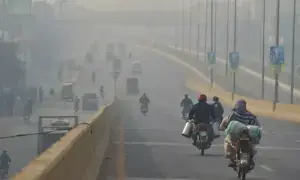

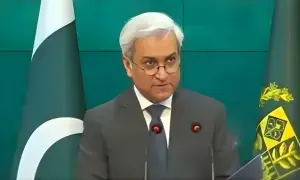

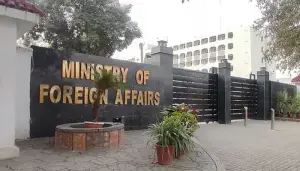
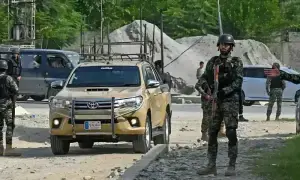
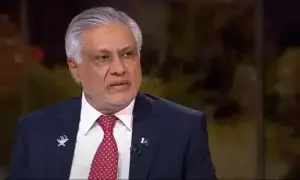
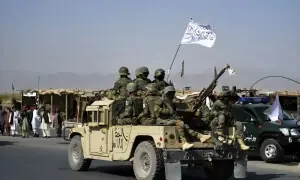
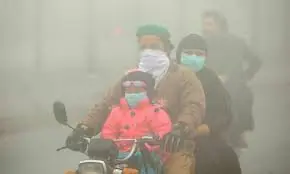
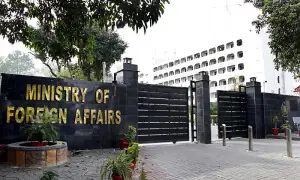
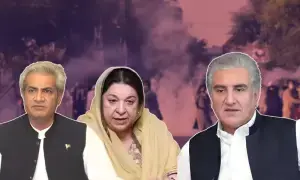
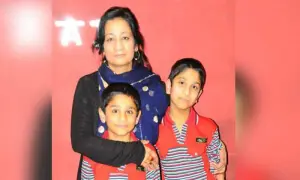
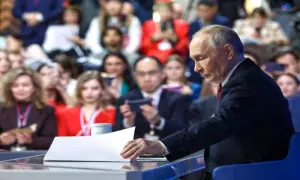
Comments are closed on this story.